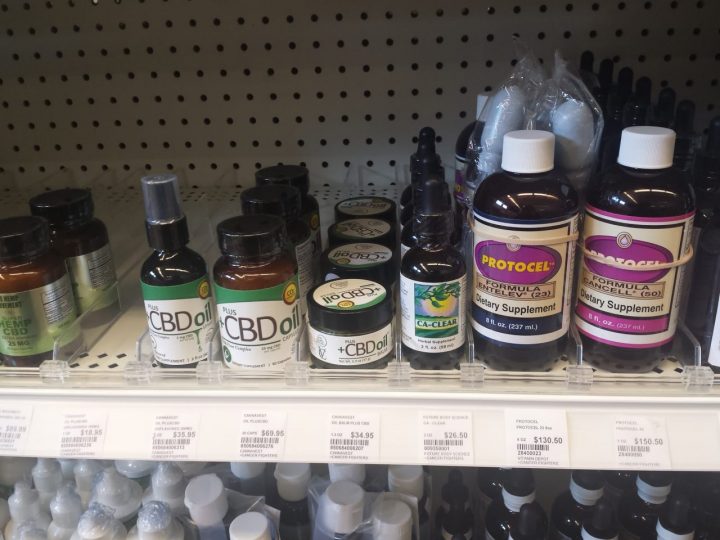
Jan 24, 2019 | Blog, News
Cannabis advocates are suing the State of Michigan to remove marijuana from the state’s list of controlled substances in its Public Health Code.
Although the passing of the adult-use marijuana law in Michigan in 2018, medical marijuana laws and the addition of bureaucracy and state taxes on marijuana sales, the state’s Public Health Code still treats marijuana like heroin.
“For 80 years they’ve been locking people up and taking their possessions and harassing and terrorizing us as citizens because we like to smoke weed,” said poet and activist John Sinclair
“I want to be part of every effort to completely remove the police from our lives regarding to marijuana. They’ve got nothing at all to do with marijuana.”
Sinclair is one of several plaintiffs on the lawsuit against the Michigan Board of Pharmacy and its chairwoman Nichole Cover, filed last week in the Michigan Court of Claims.
Interested in getting a license to operate a Cannabis Business. You need a full service law firm.
Contact Komorn Law… 800-656-3557.
Other plaintiffs include the Michigan Medical Marijuana Association, Dr. Christian Bogner, who researches the effects of cannabis to treat autism; Josey Scoggin, whose daughter is a medical marijuana patient; Paul Littler, a pharmacist; NORML of Michigan.
The “absurdity” of the legal conflict between the Medical Marihuana Facilities Licensing Act and the Public Health Code has to be addressed, said Michael Komorn, one of the attorneys behind the case.
“It’s intellectually dishonest,” Komorn said.
For the past year, state officials have allowed caregivers to grow marijuana at home and bring it to provisioning centers to sell to patients — a practice that continues as there’s a shortage of licensed marijuana in the market.
“This is not a controlled substance,” Komorn said. “The idea that someone would be growing an opioid … and bringing it to a pharmacy because they were running low on their meds is the scenario that would have to exist in order for marijuana to remain as a scheduled drug.”
“Michigan’s Public Health Code was adopted in 1978, and mirrored much of the national rhetoric towards drugs”, Komorn said.
John Sinclair has a long history of advocacy in Michigan; his 1967 arrest over two joints sparked the first Hash Bash in Ann Arbor.
The Michigan Supreme Court in 1972 noted in the opinion that overturned Sinclair’s conviction that…
“not only that there is no rational basis for classifying marijuana with the ‘hard narcotics’, but, also, that there is not even a rational basis for treating marijuana as a more dangerous drug than alcohol.”

Jan 22, 2019 | Blog, News
Watch some of the latest videos from Komorn Law and the internet about hemp and cannabis.
Watch some of the latest videos from Komorn Law
Interested in getting a license to operate a Cannabis Business. You need a full service law firm.
Contact Komorn Law… 800-656-3557.

Jan 20, 2019 | Blog, News
Michael Komorn’s AVVO reviews
5.0 stars 54 total
2010 & 2018-19 case
Posted by Vic
January 18, 2019
I have hired more love in 2010 for a case Michael represented me the results were absolutely beautiful we fought the Bay City state police department and one by case was dismissed and everything That was confiscated from me had to be returned I again hired Michael for a case in Sault Ste. Marie Michigan Little different results than expected but I am extremely happy with the work and the representation of this law firm this entire firm has been absolutely wonderful in all aspects with all of my cases very very highly recommended
This review is from a person who hired this attorney.
Interested in getting a license to operate a Cannabis Business in Michigan? Consult with a legal firm who has been a community advocate for decades.
Contact Komorn Law… 800-656-3557.

Jan 18, 2019 | Blog, News
Michigan has joined the list of several states where it’s legal for adults 21+ to use marijuana.
Employers are facing new challenges to manage their workplace drug-free policies.
Listen to the Michigan Radio Episode
Interested in getting a license to operate a Cannabis Business. You need a full service law firm.
Contact Komorn Law… 800-656-3557.

Jan 17, 2019 | Blog, News
Posted 1/17/19. Michigan voters approved a proposal to legalize recreational marijuana in the state back in November 2018 with an option for municipalities to opt out of sales.
Several Michigan communities have decided to opt out of legal marijuana sales.
Municipalities have the choice to temporarily opt out of recreational marijuana sales.
Interested in getting a license to operate a Cannabis Business. You need a full service law firm.
Contact Komorn Law… 800-656-3557.
City leaders have cited many reasons for deciding to opt out. Most of them say it’s a bad message for youth or something related to school safety.
List of opt outs who have notified LARA:
| Posted January 17, 2019 |
|
| Municipality |
County |
| Cheshire Township |
Allegan |
| Overisel Township |
Allegan |
| Three Oaks Township |
Berrien |
| Coldwater Township |
Branch |
| Newberg Township |
Cass |
| Volinia Township |
Cass |
| Sault Ste Marie |
Chippewa |
| Dallas Township |
Clinton |
| Essex Township |
Clinton |
| Greenbush Township |
Clinton |
| Delta Township |
Eaton |
| Ironwood |
Gogebic |
| Hillsdale |
Hillsdale |
| Ingham Township |
Ingham |
| Williamston |
Ingham |
| Portland |
Ionia |
| Caspian |
Iron |
| Nottawa Township |
Isabella |
| Brady Township |
Kalamazoo |
| Charleston Township |
Kalamazoo |
| Portage |
Kalamazoo |
| Prairie Ronde Township |
Kalamazoo |
| Ada Township |
Kent |
| Almont Township |
Lapeer |
| Cleveland Township |
Leelanau |
| Fairfield Township |
Lenawee |
| Tecumseh |
Lenawee |
| Brighton Charter Township |
Livingston |
| Green Oak Charter Township |
Livingston |
| Iosco Township |
Livingston |
| Oceola Township |
Livingston |
| Pentland Township |
Luce |
| Armada, Village of |
Macomb |
| Chesterfield Charter Township |
Macomb |
| Harrison Charter Township |
Macomb |
| Richmond Township |
Macomb |
| Frenchtown Charter Township |
Monroe |
| Monroe |
Monroe |
| Ashland Township |
Newaygo |
| Fremont |
Newaygo |
| Milford, Village of |
Oakland |
| Northville |
Oakland |
| Grant Township |
Oceana |
| Carrollton Township |
Saginaw |
| Bridgehampton Township |
Sanilac |
| Brown City |
Sanilac |
| Carsonville, Village of |
Sanilac |
| Elmer Township |
Sanilac |
| Flynn Township |
Sanilac |
| Lamotte Township |
Sanilac |
| Maple Valley Township |
Sanilac |
| Marlette |
Sanilac |
| Melvin, Village of |
Sanilac |
| Minden Township |
Sanilac |
| Port Sanilac, Village of |
Sanilac |
| Sandusky |
Sanilac |
| Speaker Township |
Sanilac |
| Washington Township |
Sanilac |
| Watertown Township |
Sanilac |
| Algonac |
St. Clair |
| Burtchville Township |
St. Clair |
| Casco Township |
St. Clair |
| Columbus Township |
St. Clair |
| Kenockee Township |
St. Clair |
| Richmond |
St. Clair |
| St. Clair, City of |
St. Clair |
| St. Clair Township |
St. Clair |
| Mottville Township |
St. Joseph |
| Nottawa Township |
St. Joseph |
| Sherman Township |
St. Joseph |
| Sturgis Township |
St. Joseph |
| Tuscola Township |
Tuscola |
| Geneva Township |
Van Buren |
| Allen Park |
Wayne |
| Grosse Pointe |
Wayne |
| Plymouth |
Wayne |
| Riverview |
Wayne |

Jan 17, 2019 | Blog, News
Cannabidiol, or CBD oil, is no longer considered to be marijuana in Michigan under a new legal framework created by the 2018 U.S. Farm Bill and a state law that takes effect this March.
Instead of categorizing “all things green and smelly” by default as marijuana, the federal government has defined that the cannabis sativa L. plant that has less than 0.3 percent THC by dry weight as hemp, said Michael Komorn, a lawyer and president of the Michigan Medical Marijuana Association.
Yet state officials have not yet determined how it will be regulated.
CBD oil is typically derived from hemp — though it can be derived from marijuana — and contains less than 0.3 percent THC, the active component in cannabis that makes someone high. CBD oil is rising in popularity for treatment of pain, anxiety and depression.
“CBD and other cannabinoids extracted from the plant are not criminalized anymore but would be subject to FDA regulations,” Komorn said.
Have a Law Firm represent your interests to get your state license to operate your Cannabis Business.
Contact Komorn Law… 800-656-3557.
In May 2018 officials at the Department of Licensing and Regulatory Affairs announced that they regarded CBD oil as marijuana — which sparked backlash from users, who didn’t like the idea of getting a medical marijuana card just to buy a product that contained relatively no THC.
Read The Rest Of The Story Here
The sounds of flipping and flopping can be heard in the halls






